Is archaeology a good fit for you?

Do you enjoy learning about history and ancient cultures?
Are you curious about how people lived in the past?
Do you like solving mysteries and piecing together clues?
Are you interested in working outdoors, in labs, or in museums?
Do you want to help protect and share important stories from the past?
If you answered “yes” to most of these questions, archaeology might be a great fit for you!
What is archaeology?
Archaeology is all about exploring the past to understand how people lived, what they believed, and how societies changed over time. By studying the things people left behind — like tools, buildings, and ancient writings — archaeologists help us learn about our shared human story.
Some amazing archaeological discoveries include:
Pompeii: A Roman city perfectly preserved by a volcanic eruption, giving us a detailed look at daily life nearly 2,000 years ago.
Tutankhamun’s Tomb: The nearly intact tomb of the young Egyptian pharaoh, filled with treasures that taught us about ancient Egyptian culture and burial practices.
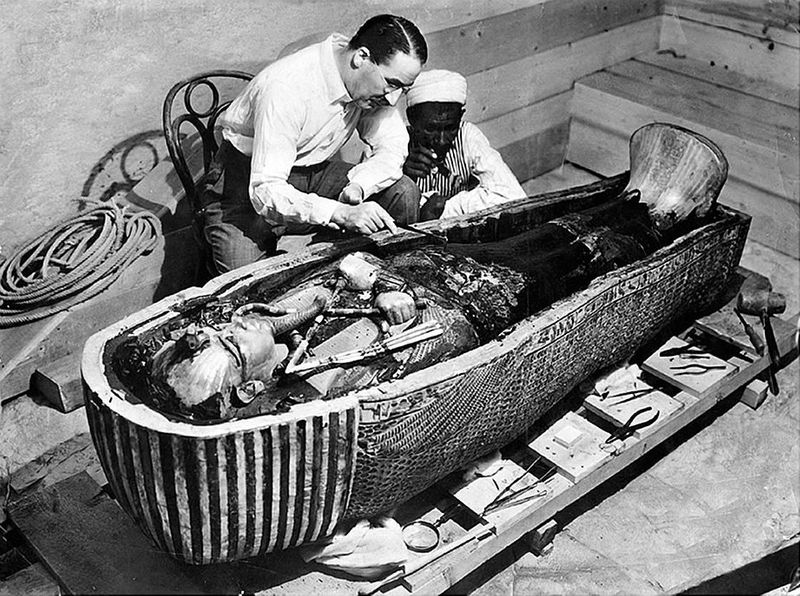 The New York Times. (n.d.). Howard Carter opens the innermost shrine of King Tutankhamun’s tomb (photograph courtesy of Wikimedia Commons).
The New York Times. (n.d.). Howard Carter opens the innermost shrine of King Tutankhamun’s tomb (photograph courtesy of Wikimedia Commons).
Why should you study archaeology?

Discover things we never knew about ancient people and civilizations.

Explore historic sites around the world and experience diverse cultures firsthand.

Help preserve important sites and artifacts.

Communicate your findings through teaching, museums, writing, or public talks to inspire and inform people about history.
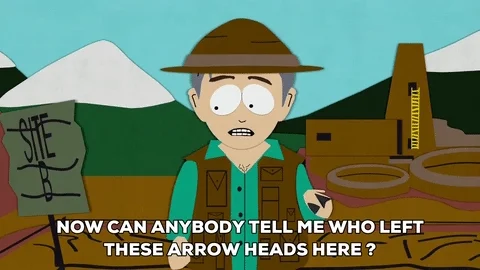
What will you learn from an archaeology program?
If you're wondering what classes you'll take in an archaeology degree, the U.S. Office of Personnel Management (OPM) sets the official standard for the coursework expected of archaeologists, especially for those aiming to work in U.S. government roles.
Their guidelines are widely recognized and give a clear picture of the essential subjects you'll study, making them a reliable example of what to expect in most archaeology programs.
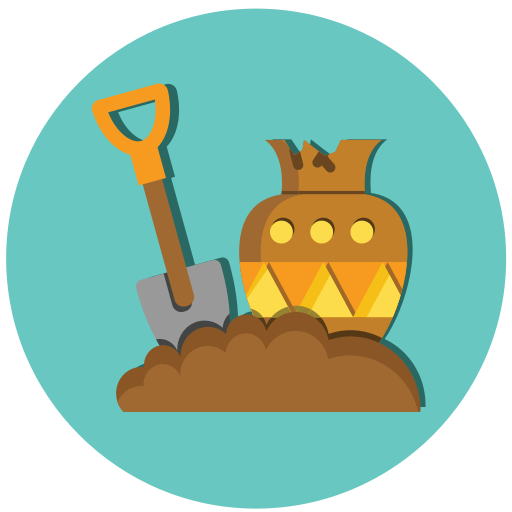 Core Archaeology Coursework:
Core Archaeology Coursework:
History of archaeology: Learn how archaeology developed as a field, including major discoveries and important figures.
Archaeological methods and theory: Study the different ways archaeologists sort, analyze, and date objects.
Regional archaeology: Take classes focused on the people, traditions, and sites of a specific region.
Archaeological field school: Get hands-on experience by working at real excavation sites, learning how to plan digs, protect finds, and write reports about your discoveries.

Sampling of Supplemental Coursework:
Geology: Learn about rocks, soil, and earth processes to understand how sites are formed and preserved
Environmental studies: Examine how humans and nature interact to see how ancient communities adapted to their surroundings
Scientific writing: Practice writing clear, factual reports and research papers.
Surveying: Gain skills in mapping and measuring land, which helps with locating and recording archaeological sites.
What’s needed to succeed in an archaeology program?
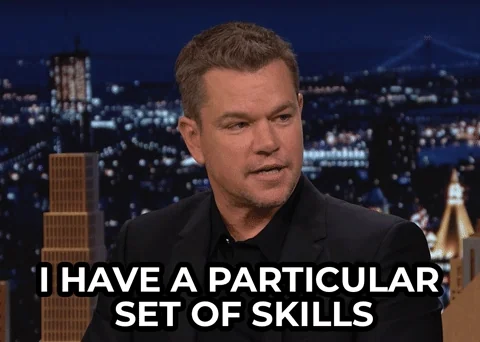
Strong research and writing skills for research papers and reports.
Good observation and analytical thinking skills.
Ability to work collaboratively with others as part of a team.
Willingness to work outdoors and sometimes travel for fieldwork.
How should you prepare for an archaeology program?
Earn a high school diploma.
Get hands-on exposure. Look for opportunities to volunteer or intern at local museums, historical societies, or archaeological sites. If possible, ask a local archaeologist if you can shadow them or observe a dig to see what the work is really like.
Research accredited archaeology programs. Most professional archaeologists need at least a bachelor’s degree, often in archaeology or anthropology. Look for programs that include coursework in archaeological methods, lab work, and especially field work, which provide real excavation experience.

Consider the cost and funding. College and field schools can be expensive, so look into scholarships, grants, or work-study options to help pay for your education.
Connect with professionals and students. Reach out to university archaeology departments, attend public lectures, or join archaeology clubs to learn more and make connections in the field.
Quiz: Who should study archaeology?

Riley
Curious, detail-oriented, strong writer, but dislikes long writing projects

Casey
Loves outdoors, adventurous, struggles with research and writing

Sam
Excellent writer, prefers indoors, dislikes traveling

Taylor
Creative, quick learner, dislikes collaborating with groups
Quiz
Who would be the best suited for studying archaeology?
Take Action
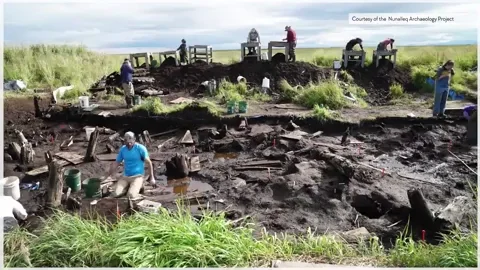
Your feedback matters to us.
This Byte helped me better understand the topic.
